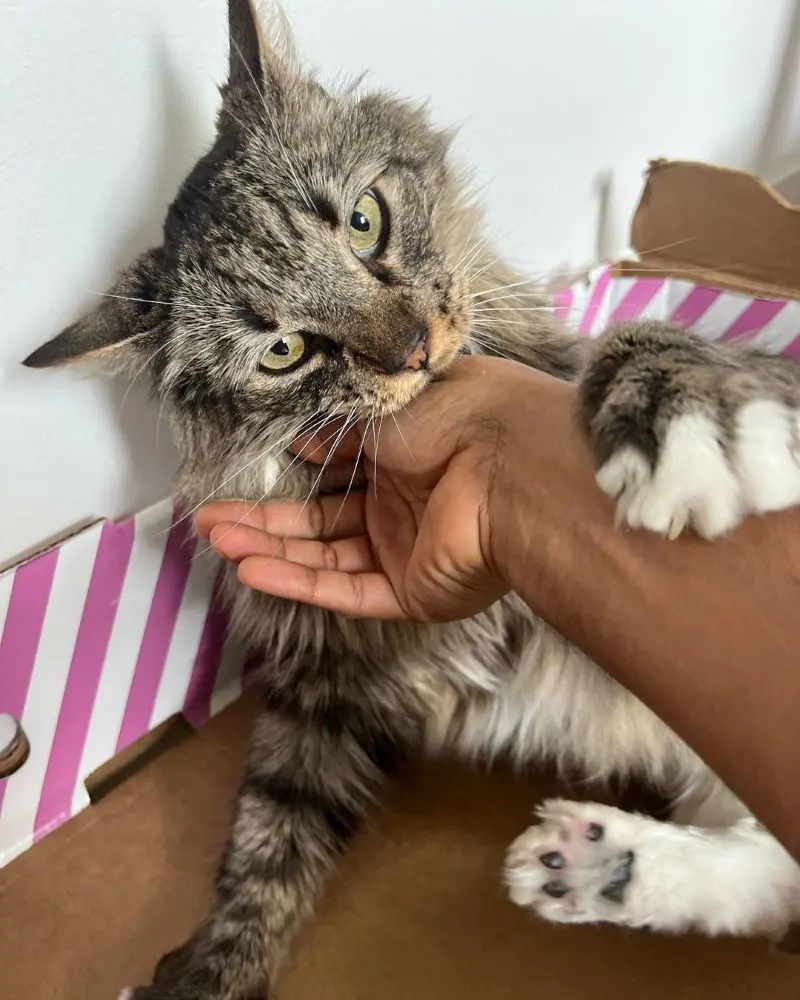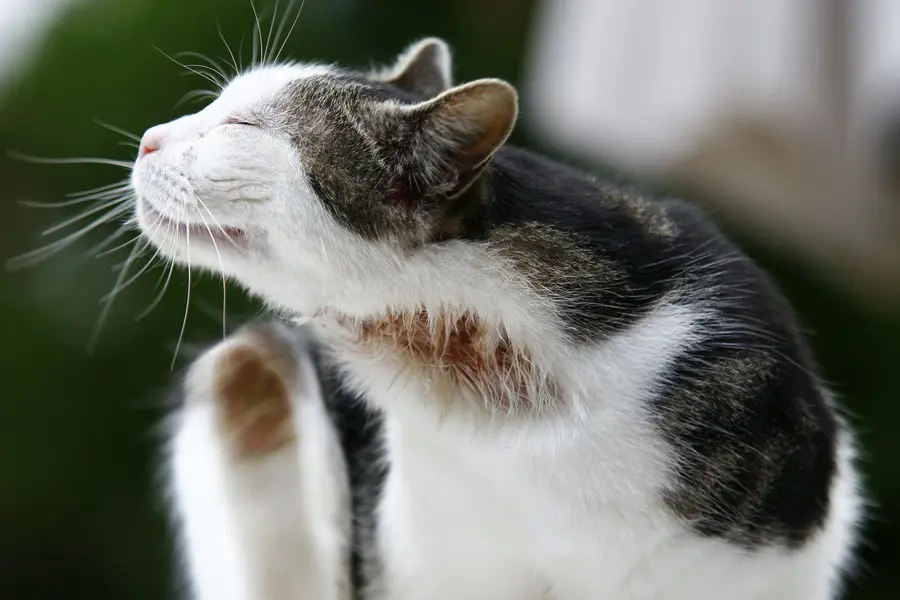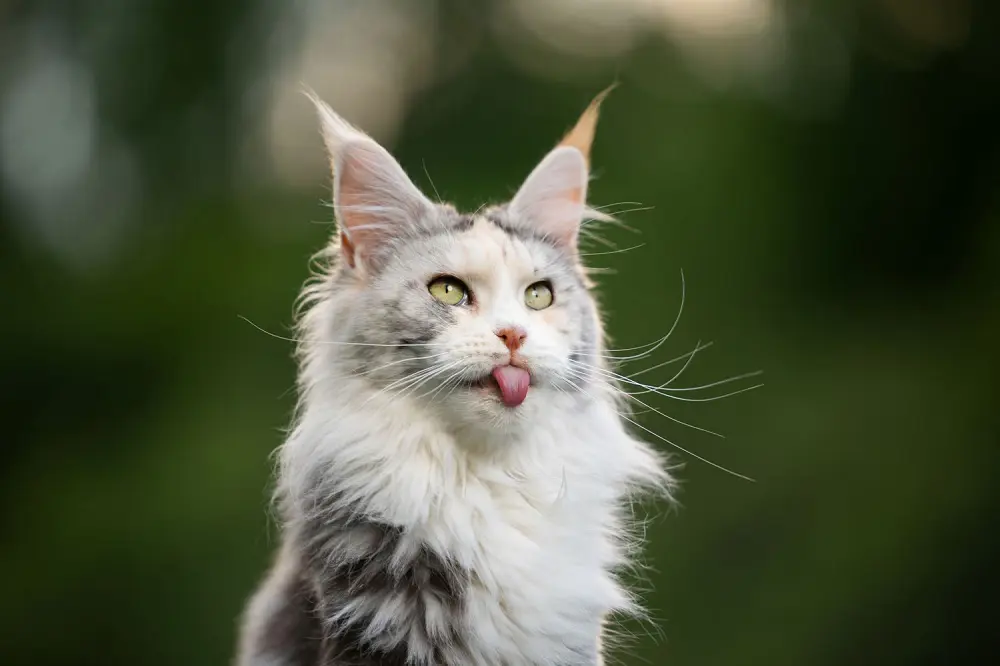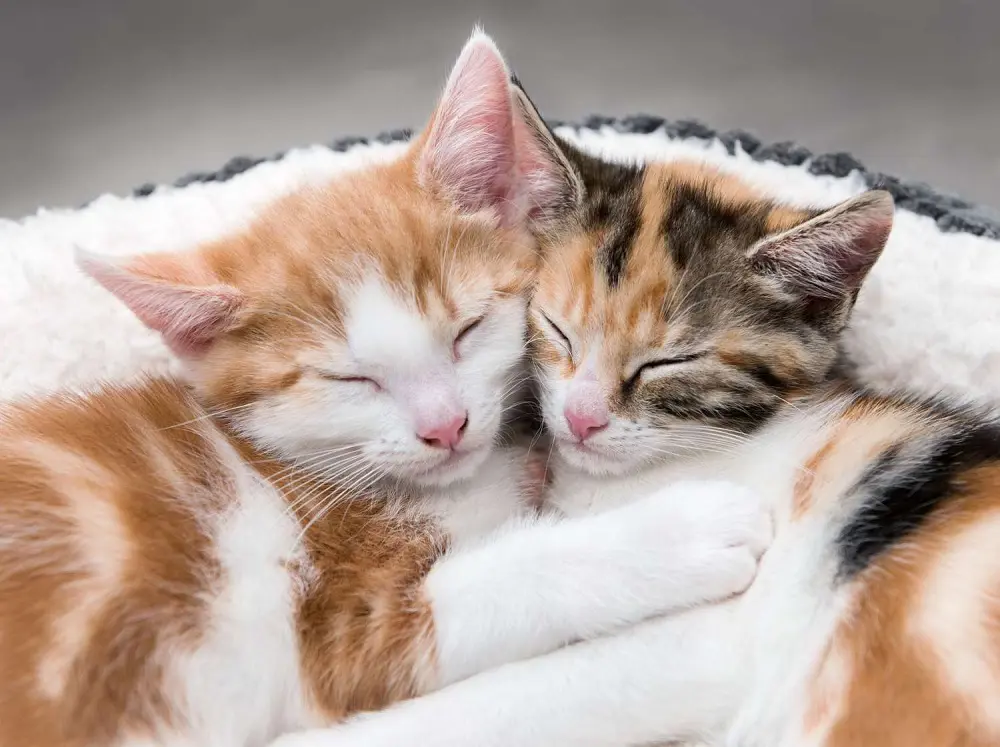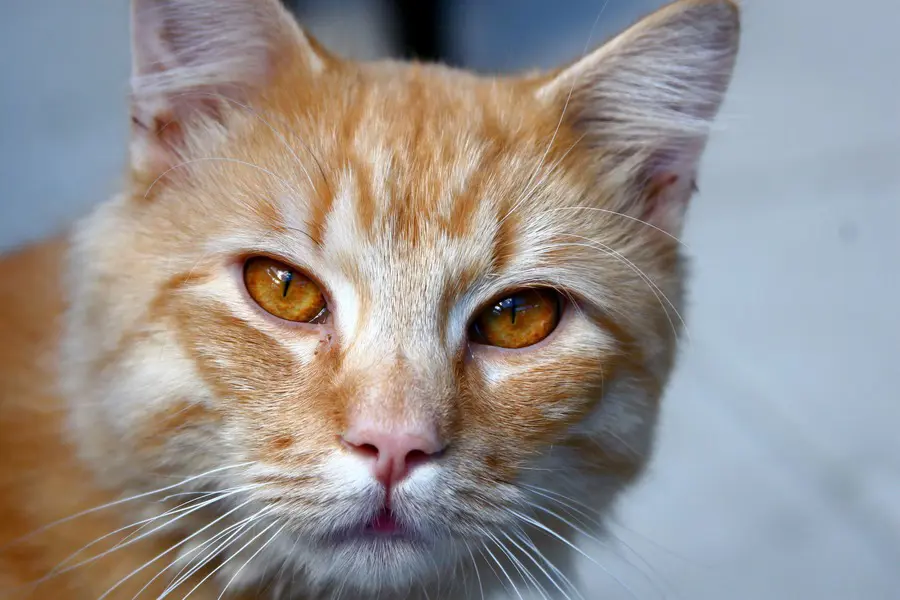Why Is My Cat Peeing Blood?
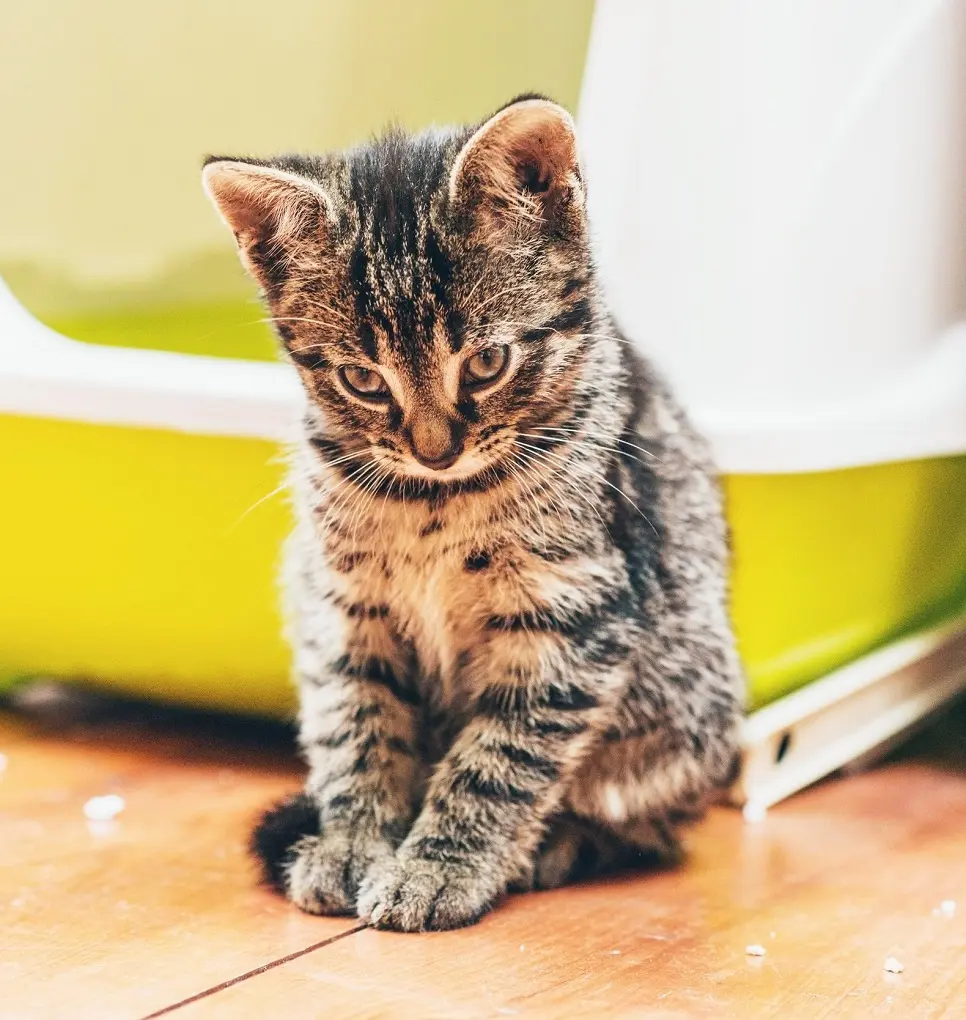
It can be concerning to find blood in your cat's urine since it may indicate a serious health problem that needs to be addressed right away. Blood in the urine, or hematuria, is a symptom of some underlying issues rather than a disease in and of itself.
This could be anything from minor diseases like bladder stones and infections to more serious ones like feline lower urinary tract disease. It's critical to comprehend the potential reasons for this upsetting symptom to provide prompt and effective care.
Urinary Tract Infections
Urinary tract infections (UTIs) in cats can result in hematuria or blood in the urine. Bacteria that infiltrate the bladder or urethra can cause discomfort and inflammation, which is how UTIs start.
Tiny amounts of blood may occur in the urine as a result of this irritation damaging the urinary tract's lining. Though they are less prevalent in young, healthy cats, urinary tract infections (UTIs) become more common as cats age, especially in females because of their shorter urethra.
A trip to the veterinarian is necessary if your cat exhibits any of the following symptoms: frequent urinating, straining to get rid of waste, or avoidance of the litter box.
Bladder Stones
Bladder stones, which occur when minerals in the urine crystallize and form rough stones inside the bladder, can be the cause of blood in a cat's pee. As the cat defecates, the stones irritate the bladder lining, resulting in minute rips and bleeding.
Bright crimson blood clots or pink urine are two possible symptoms of this. Other symptoms, such as small quantities of frequent urination, straining to urinate, or avoiding the litter box because of discomfort, may exist but are not always uncomfortable.
Veterinarian diagnosis made early is essential as treatment methods that address the issue and avoid problems like urinary tract blockages including dietary modifications, specific foods to dissolve stones, and minimally invasive surgery to remove them.
Kidney Stones

Kidney stones can also cause blood in a cat's pee, a condition known as hematuria, though less often than bladder stones. These mineralized deposits might irritate the urinary tract as they move through the kidneys. Urine may contain blood due to blood vessel damage caused by this inflammation.
On the other hand, kidney stones may not cause any symptoms until they become rather large, in contrast to bladder stones, which frequently cause considerable discomfort during urination.
Consultation with a vet is essential if your cat exhibits other symptoms such as lethargy, vomiting, or decreased appetite and you suspect kidney stones as a result of blood in the urine. Stones can be managed and complications can be avoided with early identification and treatment.
Feline Lower Urinary Tract Disease
One of the main causes of blood in cat pee is feline lower urinary tract disease or FLUTD. This disorder includes several problems that irritate and inflame the bladder and urethra.
Although the precise etiology of feline lower urinary tract disease is not always known, urinary tract infections, stress, and food can all have a role. Feline lower urinary tract disease typically appears as straining to urinate, frequent production of small volumes of urine, and possible blood in the urine.
Feline lower urinary tract disease has the chance of developing into a potentially fatal urethral blockage if left untreated.
Cystitis
Blood in your cat's pee can be a sign of feline cystitis, an inflammation of the bladder lining. Although the precise etiology of feline idiopathic cystitis, or FIC, is uncertain, dehydration, stress, and poor food are thought to play a role.
Urinating frequently, straining to urinate, and having blood in the urine are all possible outcomes of this discomfort. Contrary to several other causes of bloody urine in cats, FIC is not a bacterial infection. It's crucial to see a veterinarian if you notice your cat exhibiting these symptoms.
To treat FIC, they can rule out alternative reasons and suggest dietary modifications, stress reduction techniques, and pain medication to reduce inflammation and discomfort.
Urethral Obstruction

In cats, urethral blockage happens when the tube that drains the bladder and exits the body becomes clogged. Mucus plugs, bladder stones, and urine crystals are a few possible causes of this, since their urethras are smaller, and male cats are more vulnerable.
When obstruction happens, the cat can't pee, which causes the bladder to fill up with pressure. In addition to being uncomfortable, this ailment could be fatal if left untreated. Symptoms include vocalization from pain, numerous urination attempts with little to no output, and obvious discomfort.
Urine-containing blood may result from irritation and inflammation caused by obstruction. It is imperative to seek immediate vet attention, which frequently entails catheterization to remove obstruction and treatment of any underlying problems to stop recurrence.
Trauma
Blood in the urine can be the result of trauma to a cat's urinary tract as it can come from some places, including car crashes, falls, animal conflicts, and accidents. Internal bleeding can result from blunt force injuries or penetrating wounds to the kidneys, urethra, or bladder.
Lethargy, obvious external injuries, pain while urinating, and visible blood in the urine are all signs of trauma-induced hematuria. Trauma can, in extreme situations, result in a ruptured kidney or bladder, which requires immediate medical attention.
To determine the degree of the injury using imaging methods like X-rays or ultrasounds, prompt veterinary intervention is crucial. Surgery, pain relief, and supportive care may all be part of the treatment to promote recovery and avoid problems like infections.
Hyperthyroidism
Cats with hyperthyroidism have a lot of thyroid hormones produced by the thyroid gland. An imbalance in hormones can impact multiple body systems, including the urinary system, as elevated thyroid hormone levels accelerate metabolic processes, perhaps resulting in increased thirst and urination.
Urinating too much might irritate the urinary system, which can occasionally lead to blood in the urine. Moreover, elevated blood pressure, which over time can harm the kidneys and urinary tract, might be a result of hyperthyroidism.
Hyperactivity, increased drinking, urine, weight loss despite an increase in hunger, and occasional vomiting and diarrhea are symptoms of hyperthyroidism. Medication, radioactive iodine therapy, or thyroid gland excision surgery are available treatment options for hyperthyroidism.
Blood Clotting Disorders
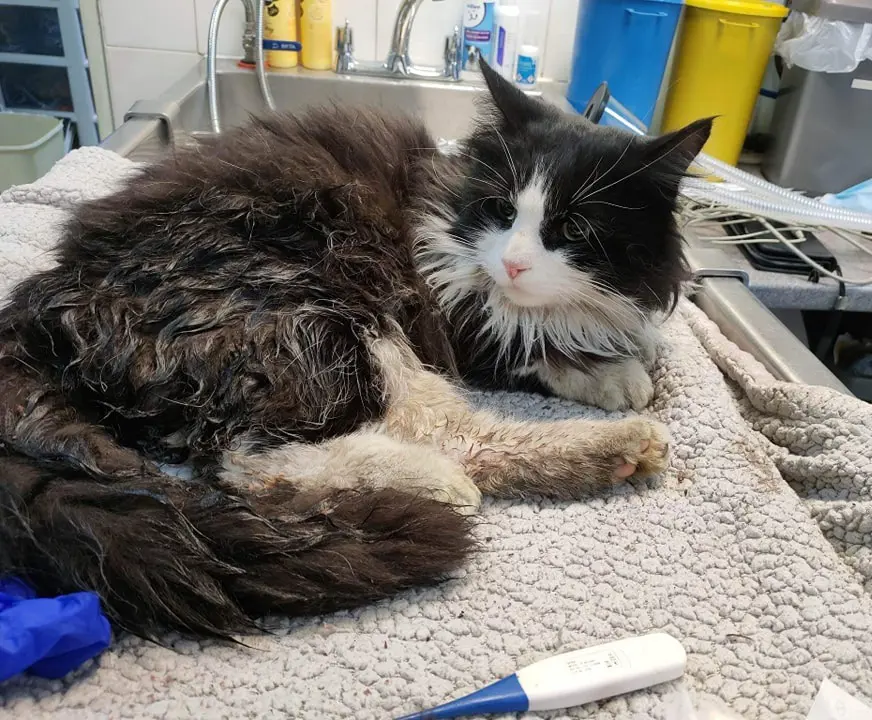
Urine-containing blood is a complication of cagulopathies, which are diseases of the blood clotting system in cats. These conditions impair the blood's capacity to clot appropriately, which makes even small wounds cause significant bleeding.
Normal clotting mechanisms can be disrupted by conditions including vitamin K insufficiency, liver illness, or hemophilia. If the urinary tract is impacted, cats with clotting disorders may show signs of prolonged or spontaneous bleeding following an injury, which could result in blood in the urine.
Blood tests are used to diagnose coagulation problems by measuring clotting times and identifying particular deficits or anomalies. Depending on the underlying reason, treatment options may include vitamin K supplements, blood transfusions, or meds to control symptoms and stop more bleeding episodes.
Parasites
Cat pee containing blood can potentially be a symptom of parasitic diseases as some parasites can infect the bladder and cause bleeding and irritation, like Capillaria plica. Usually, polluted water or intermediate hosts are how these parasites are consumed.
Cats with the infection may exhibit symptoms such as blood in the urine, frequent urination, straining to urinate, and generalized pain. Hematuria is the result of inflammation and damage to the lining of the urinary system caused by parasites.
A vet examination and urine analysis to find parasite eggs are necessary for the diagnosis of a parasitic infection. Antiparasitic meds are used as part of treatment to get rid of the parasite. To lower the risk of parasite diseases, preventive practices include making sure that the water you drink is clean and practicing excellent hygiene.
Idiopathic Causes
If your cat has blood in their urine, you should be concerned. Nonetheless, feline idiopathic cystitis (FIC) is one potential cause. FIC is an inflammatory condition that can cause bleeding and discomfort in the bladder lining.
As the precise origin of FIC is unknown, the condition is referred to as "idiopathic." There is no one specific cause, while elements like stress, weight, and dehydration are thought to be involved.
It's important to see your veterinarian if your cat has blood in its pee to rule out other possible reasons such as infections or bladder stones. Early detection and treatment of feline infection control (FIC) can help your kitty buddy stay comfortable and avoid more difficulties.
Diabetes

Diabetic cystopathy is a disorder that affects the bladder and urinary tract that can result from diabetes in cats. Increased urine production brought on by elevated blood sugar levels results in frequent urination and a bloated bladder.
This may result in bacterial infections in the urinary tract, which can cause blood in the urine. Furthermore, infections are more likely to occur in cats with diabetes because of their compromised immune systems.
It is essential to properly manage diabetes through diet changes, insulin therapy, and routine veterinary examinations to regulate blood sugar levels and avoid problems like hematuria.
Medications
Blood in a cat's pee is an adverse effect of some meds as certain medications, such as antibiotics and non-steroidal anti-inflammatory meds, can irritate or even induce bleeding in the urinary tract.
Extended usage or elevated dosages of these meds may cause irritation, ulceration, or severe harm to the bladder or urethra's lining, which could result in hematuria. Certain meds may interfere with the kidneys' capacity to appropriately filter waste, which could result in blood leaking into the urine.
It's critical to contact a vet right away if a cat taking medicine exhibits symptoms of blood in the urine. To safeguard the urinary system, the vet might need to change the medication's dosage, administer supportive therapies, or both.
Severe Dehydration
Severely dehydrated cats may have blood in their pee as dehydrated cats don't have enough water in their body to sustain regular bodily processes. This inadequacy may lead to extremely concentrated pee, which irritates the urethral and bladder linings.
Urine may become visible as a result of small bleeding and inflammation brought on by the irritation. Dehydration can be caused by many things, such as drinking too little water, having a lot of diarrhea or vomiting, and having underlying medical disorders including kidney illness.
It is essential to make sure a cat always has access to clean water. It's critical to seek veterinarian care as soon as a cat exhibits symptoms of dehydration, such as dry gums, lethargy, sunken eyes, or decreased skin elasticity.
Genetic Predispositions
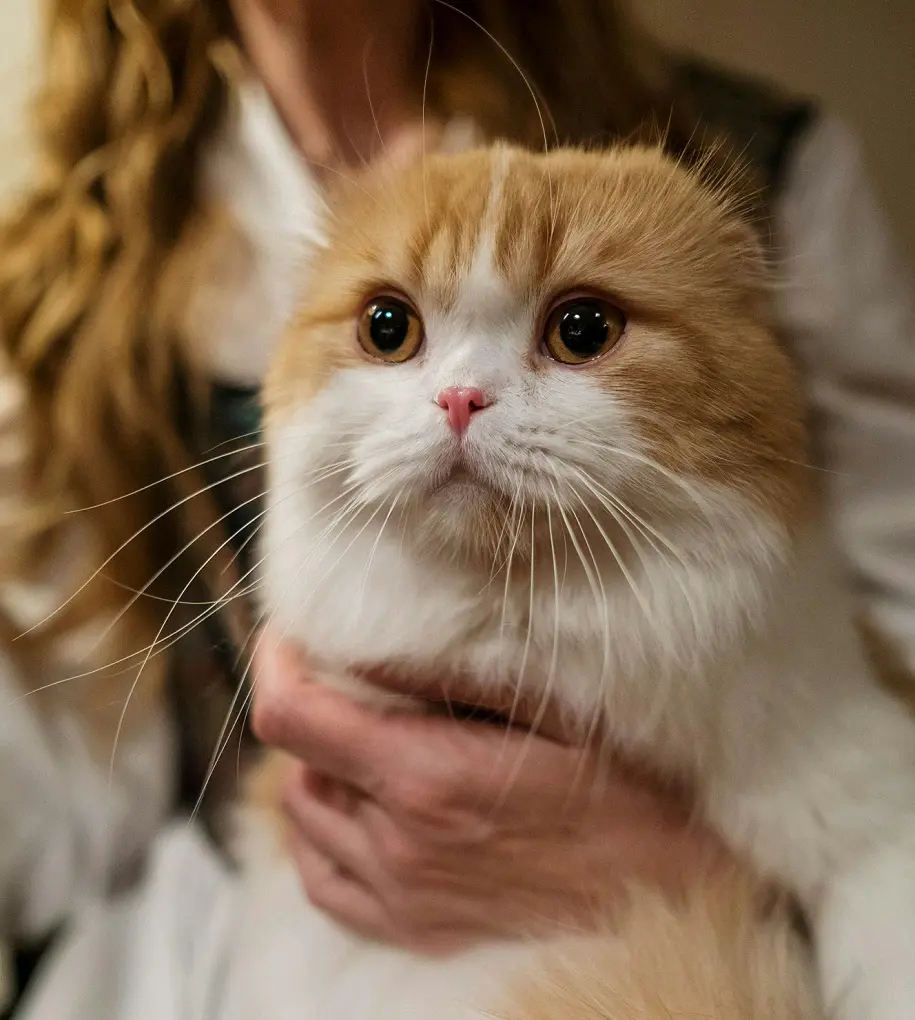
Blood in a cat's urine can be attributed in large part to genetic predispositions. Certain cat breeds or individual cats may have a hereditary predisposition to urinary system problems, such as kidney or bladder stones, or other urinary illnesses that can result in hematuria.
For example, blood in the urine can be a symptom of polycystic kidney disease, which is more common in some breeds of cats, such as Himalayan and Persian cats. Genetic variables may impact a cat's morphology, metabolism, or urine chemistry, which may lead to the development of urinary illnesses.
To maintain a cat's health if they are genetically predisposed to urinary issues, preventive measures like a particular diet and routine veterinary checkups are essential.
Diagnosing Bloody Cat Urine
Veterinarians take a multi-step approach to find out the cause when they find blood in their urine.
History and Physical Exam
The presence of blood in a cat's urine needs to be investigated by a veterinarian to determine the cause. An extensive past serves as the first step in the approach. This involves talking about the symptoms, history and present health problems, current medications, and even your cat's food.
After that, a comprehensive physical examination enables the veterinarian to spot any anomalies that could provide insight into the underlying issue.
Vets can accurately determine the cause behind bloody urine and suggest the best course of action for your cat by combining this information with results from additional diagnostic testing.
Urinalysis and Bloodwork
Diagnosing blood in your cat's urine requires using two different methods. A urinalysis first looks for red blood cells, crystals that could be bladder stones, and infection indicators in the urine. This offers important hints regarding possible irritants or underlying urinary tract problems.
Second, a blood test is performed to evaluate the general health and kidney function of your cat, which can occasionally impact urinary health. Veterinarians can better understand the reason for the blood in your cat's pee and suggest the best course of action by combining these tests.
Cystoscopy
In rare circumstances, a specialized technique known as cystoscopy may be necessary to diagnose the reason why your cat has blood in their pee. A tiny camera is inserted into the bladder via the urethra in this minimally invasive procedure.
This makes it possible for vets to see the inside of these organs directly and spot any potential anomalies like growths or stones in the bladder. During the cystoscopy, a biopsy can be obtained if any worrying tissue is discovered for additional examination.
Cystoscopy is not a common procedure, although it is a useful diagnostic tool in complicated instances.
Preventing Blood in Cat Urine
Even while it's challenging to prevent blood in cat urine, there are a few ways that can greatly lower the likelihood:
Diet: Make sure the food your cat eats is balanced and appropriate for their life stage. Consult your veterinarian about the potential benefits of a specific diet designed for their urinary health.
Hydration: Provide several bowls of fresh water throughout the house, apart from food and litter boxes, to encourage water consumption. Think about eating moist food because it increases hydration intake.
Stress Reduction: Create a stimulating environment for cats with vertical areas, scratching posts, and hiding places to help reduce their stress levels. Keep your schedule regular and deal with any potential stressors, such as new pets or loud noises.
Litter Box Management: Make sure litter boxes are easily accessible and kept clean. For households with numerous cats, think about utilizing a larger box or multiple boxes.
Weight Control: Keeping the urinary system under stress is possible by maintaining a healthy weight. If you need help managing your weight, speak with your veterinarian.
Top Lists



